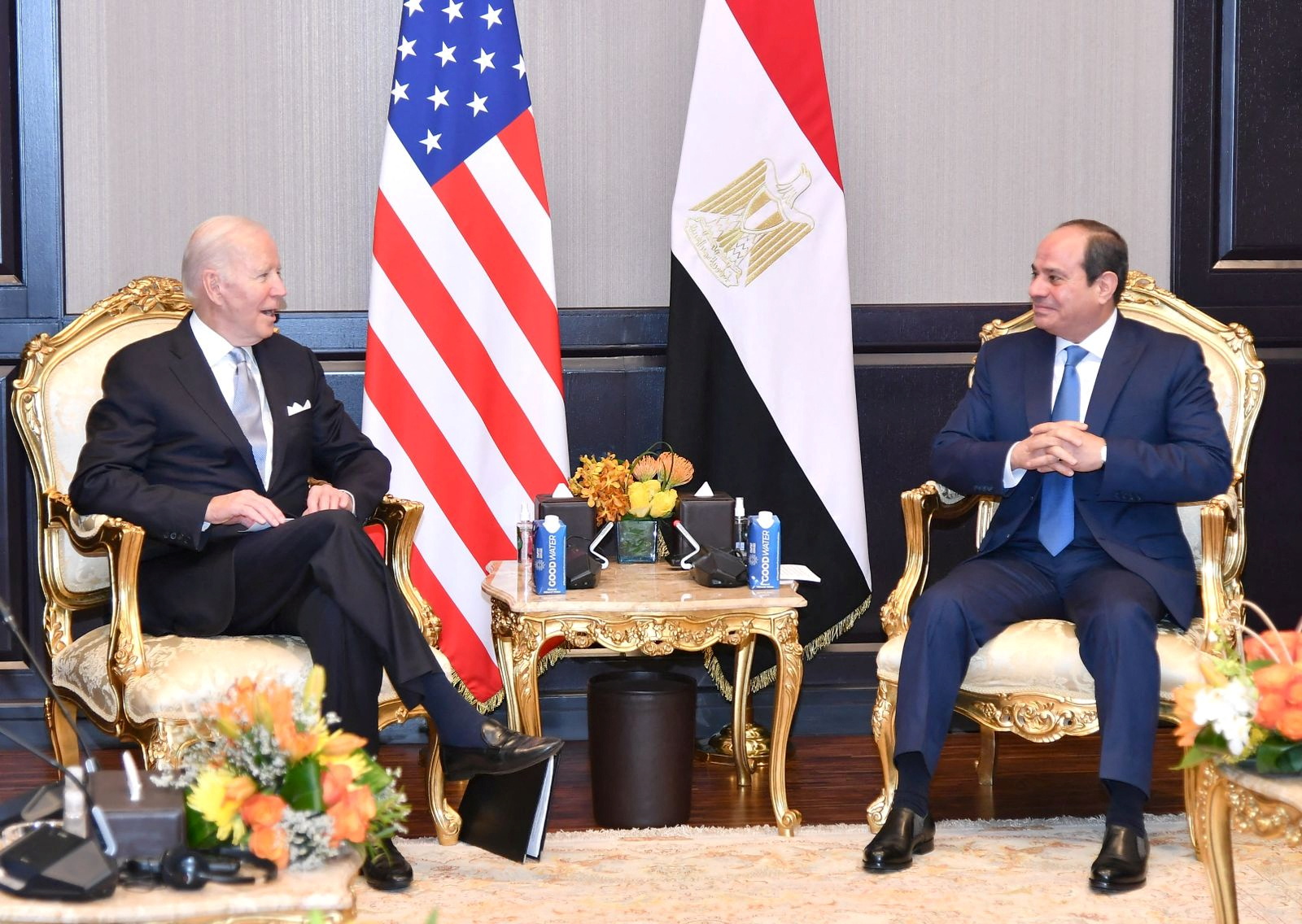
The administration of United States President Joe Biden has said it will provide Egypt with $1.3bn in military assistance, overriding concerns about ongoing rights abuses by the government of President Abdel Fattah el-Sisi.
Normally, part of that aid would be subject to conditions requiring Egypt to implement improvements to its human rights record. But on Wednesday, US Secretary of State Antony Blinken told Congress that the military assistance would not face the usual conditions.
A spokesperson for the US State Department later explained that those requirements were waived in the name of national security.
“This decision is important to advancing regional peace and Egypt’s specific and ongoing contributions to US national security priorities, particularly to finalise a ceasefire agreement for Gaza, bring the hostages home, surge humanitarian assistance for Palestinians in need, and help bring an enduring end to the Israel-Hamas conflict,” the spokesperson told the news outlet Reuters.
Egypt, an important US ally in the Middle East, has played a key role in ongoing ceasefire negotiations between Israel and the Palestinian armed group Hamas, as leaders seek an end to the war in Gaza.
Since 2020, the US has withheld a portion of Egypt’s security assistance — amounting to around $320m — as a form of leverage to push for progress on human rights and democracy.
But on Wednesday, Blinken said that this year, the full amount would be granted because of “clear and consistent” improvements on issues such as the release of political prisoners.
An estimated $95m in military aid was tied to the prisoners’ release, and a further $225m was also subject to human rights scrutiny.
However, rights watchdogs such as Amnesty International and Human Rights Watch have denied that Egypt is working to ease the repression of political dissidents. They say that repressive activities by the government remain widespread.
“Authorities released hundreds of detainees but arrested much more, adding to the thousands of critics, including journalists, peaceful activists, and human rights defenders,” Human Rights Watch said in an assessment of conditions in Egypt.
“Authorities harass and detain relatives of dissidents abroad and use vague ‘morality’ charges to prosecute LGBT people, female social media influencers and survivors of sexual violence. Grave crimes, including torture and enforced disappearances, are committed with impunity.”
Critics have long alleged that there is a tension between US rhetoric around human rights and democracy in the Middle East and its willingness to supply billions of dollars in weapons to allies with poor records in those areas.
El-Sisi came to power in a 2013 military coup that overthrew the elected Egyptian leader Mohamed Morsi. In the aftermath, the US quickly resumed military assistance despite a lethal crackdown on protests calling for the democratically elected government to be reinstalled.







